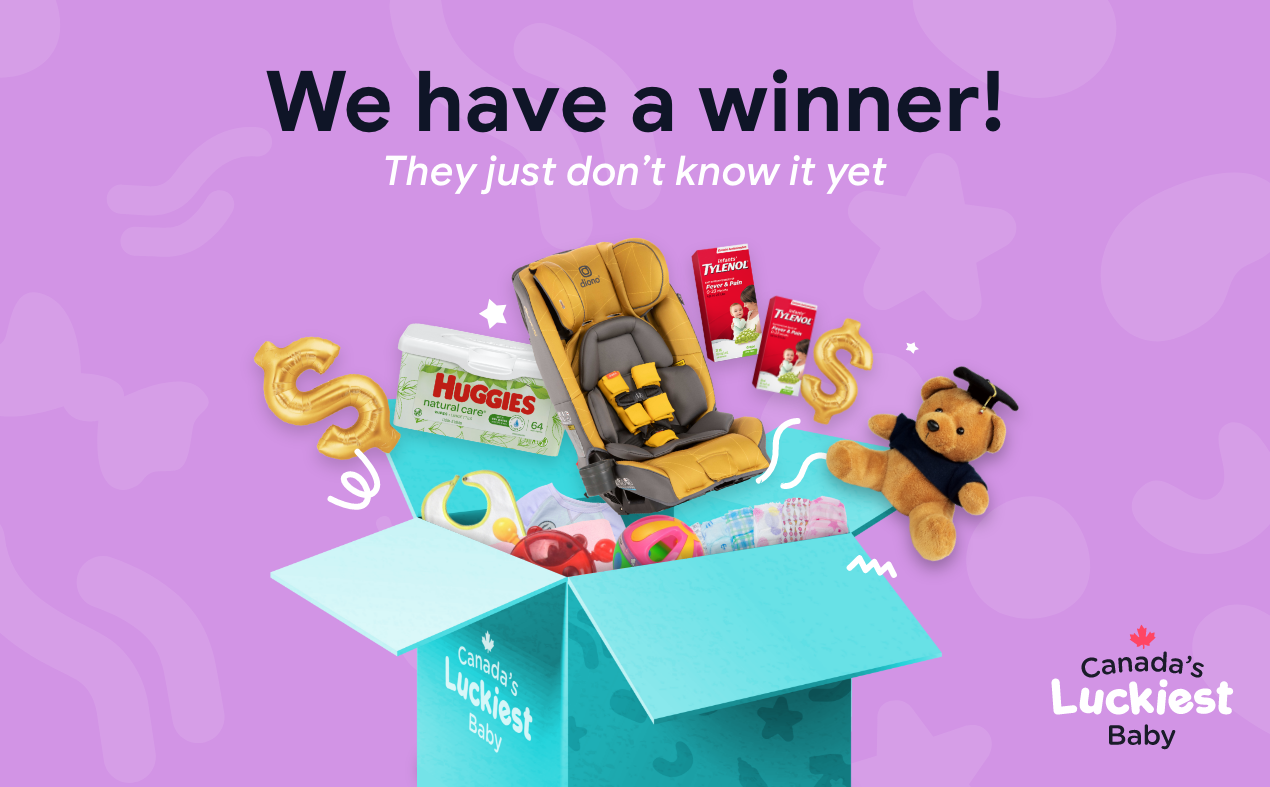Formula or breast milk? There are advantages to both options.
Whether you choose to breastfeed or formula-feed your baby (or use a combination of boob and bottle) is a question worth some serious (and 100% judgement-free) consideration. There’s a lot of noise online about this topic — controversial opinions circulate regularly — but the choice you make for your baby really comes down to what’s going to be the best option for your and your baby’s health, and what will be the best fit for your family lifestyle.
It’s important to understand that many women are physically incapable of breastfeeding their baby and often these women experience bottle-feeding shame . It’s a real issue, unfortunately. According to recent Stats Canada reports, about 44% of mothers who breastfed for less than 6 months stopped because they felt they had insufficient breast milk, while 18% reported having difficulty with breastfeeding technique. Other new parents may choose to formula-feed simply because it’s a better match for their busy lifestyle or because it allows the other parent to have a more hands-on role with feeding in the early months. Breastfeeding is recommended by the World Health Organization, and by doctors and hospitals as the first choice for anyone who can do it, but formula is a safe and nutritionally sound choice, particularly considering that most of us in Canada have easy access to clean water and can sterilize bottles.
New parents generally have deeply personal reasons for making the feeding choices they make, so it’s important to respect their decisions just as a matter of personal autonomy
Many new moms feel that breastfeeding is an irreplaceable bonding experience between a mother and a newborn and that it should be celebrated. Hence the ‘brelfie’ movement (brelfie = breastfeeding selfies). This Instagram trend has served to normalize breastfeeding in public, but it has inadvertently resulted in a backlash from mothers who choose to formula feed their newborns; some formula-feeding parents object to the suggestion that they simply lack the confidence to breastfeed in public, or worse, that they care less about the well-being of their newborns than breastfeeding mothers do. Our perspective at PLN is that feeding your baby, whether by formula or breast, is an act of love, and we are all doing the best we can.
As you’ll discover as you read on, new parents generally have deeply personal reasons for making the feeding choices they make, so it’s important to respect their decisions just as a matter of personal autonomy. So, if you’re expecting a newborn, read on to get your intimate questions answered about the options!
“Breast vs. Bottle”
Most doctors champion the health benefits of breastfeeding for newborn babies. The Canadian Paediatric Society and the World Health Organization (WHO) both recommend breastfeeding as the number one choice for baby health as studies have linked it to preventing allergies from developing, defending against infections, and protecting babies against a number of chronic conditions. However, the practice of breastfeeding does have costs for the mother in terms of the expenditure of energy and emotional stress; these can be hard to quantify, so they’re often not fully considered when weighing the pros and cons. Sometimes medical obstacles like mastitis and thrush, not to mention postpartum depression, can play a part in how easy or challenging it is to breastfeed. There are plenty of lifestyle reasons why mothers choose to formula-feed, as well — some mothers return to work soon after giving birth, and don’t have the option or inclination to pump. As well, some babies (particularly premature babies) have a poor sucking reflex and have difficulty breastfeeding. Occasionally, mothers need to take medication that would be unsafe for the baby to consume through her breast milk. Ultimately, it may not actually be possible to truly compare formula and breastfeeding to each other, because each person’s experience is so different; the best way to look at it is probably just to evaluate each option in its own right.
Choosing to Breastfeed
Breastfeeding Perks
- The health benefits. This has been discussed already, but the natural illness and chronic disease prevention your baby will receive from breast milk is a major benefit.
- Breastfeeding helps with post-pregnancy weight loss. Infant-nutrition expert Ruth A. Lawrence, M.D., and author of Breastfeeding: A Guide for the Medical Profession confirms that breastfeeding burns an average of 400-500 calories a day.
- Breastfeeding is free and easy to do. It will cost you $60-$100/month to formula feed and when you need it, you’ll need to prepare it by measuring out the right amount and warming it up to the right temperature. Breast milk is ready in an instant and the temperature is perfect every time.
- Mother-infant bonding. Let’s call it ‘latch love’. The New Mother’s Guide to Breastfeeding, published by the American Academy of Pediatrics, describes the physical closeness of breastfeeding as having a variety of benefits both for the mother and for the newborn baby.
Will my breasts change if I breastfeed?
Best advice is to not worry about this so much – what will be, will be, and genetics will also play a big role in what physical changes occur to your body. In fact, studies show that pregnancy alone will change your breasts and cause them to grow, shrink, stretch, sag, etc., and these physical effects are likely not caused by the effects of breastfeeding (or not breastfeeding).
How will breastfeeding affect my nipples?
Your nipples will become darker and harder, during your pregnancy no matter what, in preparation for breastfeeding. If you decide to breastfeed, understand that your nipples may become chapped if not taken care of. Nipple care is clutch to your comfort. Every baby and every breast is different, but your nipples will fair better if your baby latches on well, with the entire nipple and part of the breast is the mouth, rather than just the nipple tip, as the baby’s hard palate could cause a painful feeding. Remember, further into their mouth the palate is softer (this is a more nipple-friendly zone). If you have trouble or experience discomfort, see your doctor for advice.
Choosing To Formula Feed
What is formula made of?
Infant formula has become a very popular feeding option for modern families. The main ingredient in most commercial formulas is cow’s milk or soy milk. Although formula does not exactly replicate the health benefits of breastmilk for illness and chronic disease prevention, most formulas actually contain some nutrients and vitamins that newborns are unable to get from breast milk alone, such as Vitamin D.
Formula-Feeding Benefits
- Flexibility. When you can be as busy as you need to be for your career or to care for your other children, it can be wonderful to not need to be constantly pumping in order to stay flexible and mobile.
- Dietary issue will be a non-issue. Your personal dietary restrictions won’t affect your baby’s nutritional health if you choose to formula-feed. Parents with severe food allergies or dietary restrictions often choose to formula-feed as the healthiest option.
- Partner-baby bonding. Nighttime feedings can be a great time to bond with your baby, and if you use formula, your partner can easily take on this role as well to help you out and enjoy spending this quiet time with the baby. No boobs needed.
- Sick moms can medicate. If you become ill and must take medication, you will be unable to breastfeed, like, cold turkey. Formula will be the healthy alternative to your contaminated breast milk.
Choosing to Combination Feed
There’s lots to consider on the topic of breastfeeding or formula-feeding our babies, and there are cons we could list alongside the pros, but this article isn’t about stripping down to a black and white conversation of which option is better, it’s about helping you choose what option will be best for your family. And remember – the absolute most important thing (whether you decide to go with boobs or bottles) is just to make sure your baby is cared for, healthy and loved.
*Opinions expressed are those of the author, and not necessarily those of Parent Life Network or their partners.



 Sponsored
Sponsored




